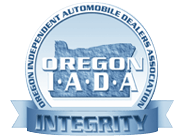Scammers Set Their Sights on Small Businesses

Scammers Set Their Sights on Small Businesses
Let’s start with a number: 4.7 million.
It’s the population of Louisiana, the mileage traveled if you circumnavigated the globe 188 times – and the number of reports of scams and questionable business practices received by the Federal Trade Commission in 2020.
The FTC and law enforcers across the country – including local police departments – use the information in the FTC’s Consumer Sentinel Network to track trends, allocate investigative resources and build cases in court.
A study of the stats reveals 46 percent of all reports last year were related to some form of fraud, with losses to consumers totaling $3.3 billion – up from $1.8 billion in 2019.
Imposter scams took the unenviable number one spot. Sometimes they were in the form of the notorious “family emergency” scam, in which a fraudster impersonates a relative and claims to need money ASAP for a hospital bill, bail, etc.
Other imposters say they’re from the Internal Revenue Service or other government agency and demand payment by the close of business.
Identity theft accounted for another 1.4 million reports from consumers, about twice as many as in 2019.
Americans are still reeling from the one-two punch of COVID and economic uncertainty, but for the scam sector, business appears to be booming.
The 2020 statistics reveal a particularly troubling trend for small and mid-sized businesses.
It seems scammers have you in their sights. Here are three growing forms of business-to-business fraud and steps you can take to protect your dealership.
Business email imposters: Scammers are out to trade on your company’s good name and they’ve upped their game since the bad old days of phishing.
Using information readily available online and in social media, they hijack the names of businesses and corporate executives and spoof their email addresses in an effort to get employees or customers to click on malicious links, turn over passwords or wire money supposedly needed to seal a big deal.
Remind customers that your dealership will never email or call them out of the blue to ask for sensitive information – credit card numbers, account data and the like.
For employees, the remote workplace can make it harder for them to investigate questionable contacts. Perhaps it’s time for a training refresher about the risks of clicking on email links or responding to cold calls asking for confidential data.
No need to start from scratch. Visit www.ftc.gov/cybersecurity for training materials you can share with your staff.
Bogus unemployment insurance claims: There has been a surge in identity theft related to unemployment insurance claims. Of the identity theft reports received by the FTC last year, 406,375 came from people who said their information had been misused to apply for a government document or benefit – for example, unemployment insurance. That’s a whopping increase from 2019 when that number was 23,213.
What can you do?
Alert your HR team and tell your employees to let you know if they get a letter about an unemployment insurance claim while they still work for you.
Contact the appropriate state agency immediately if you suspect that form of fraud.
Deceptive offers of financing: Scammers are sending companies messages that falsely claim to offer loans through the Small Business Administration’s Paycheck Protection Program.
They continue the con by setting up look-alike sites with soundalike web addresses to leave the misleading impression they’re affiliated with the SBA.
Only after sharing sensitive financial information do applicants learn they’ve been dealing with an imposter.
How can businesses keep their guard up?
Don’t click on links in unsolicited emails. If businesses choose to explore online options, they need to investigate the sites thoroughly before sharing financial details.
Fly-by-nighters have been known to pose as lenders to get access to personal data. The crooks then steal the applicants’ identities and seek loans in the names of their business.
The safer bet is to get accurate information at www.sba.gov – the official SBA site – or from a trusted financial institution.
Citation:
Fair, L. (2021, April 1, UCD Magazine). FTC Perspectives: Scammers set their sites on small businesses. Retrieved April 25, 2021, from https://www.omagdigital.com/publication/?m=54087&i=701278&view=articleBrowser&article_id=3985712

